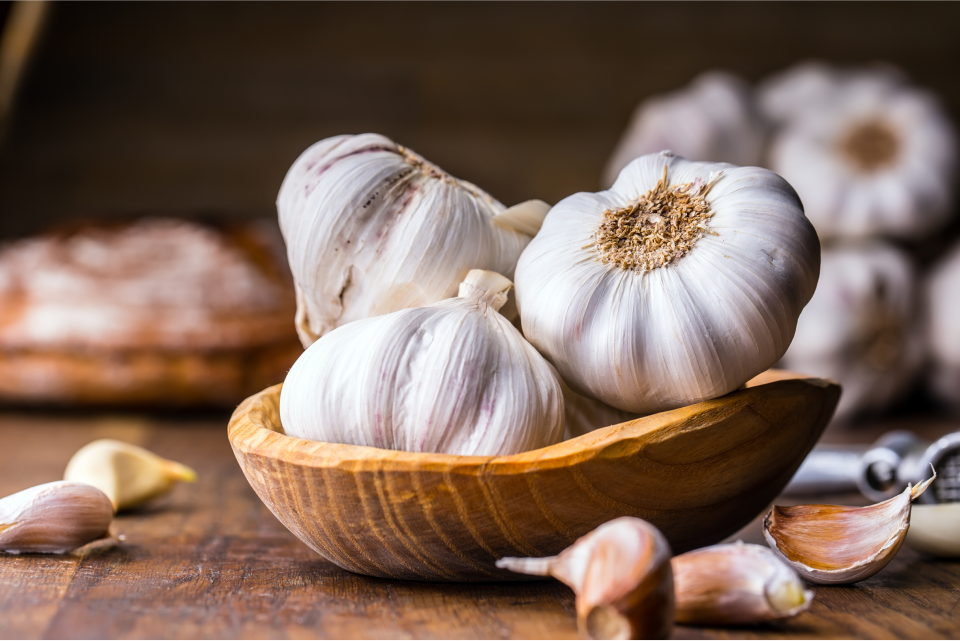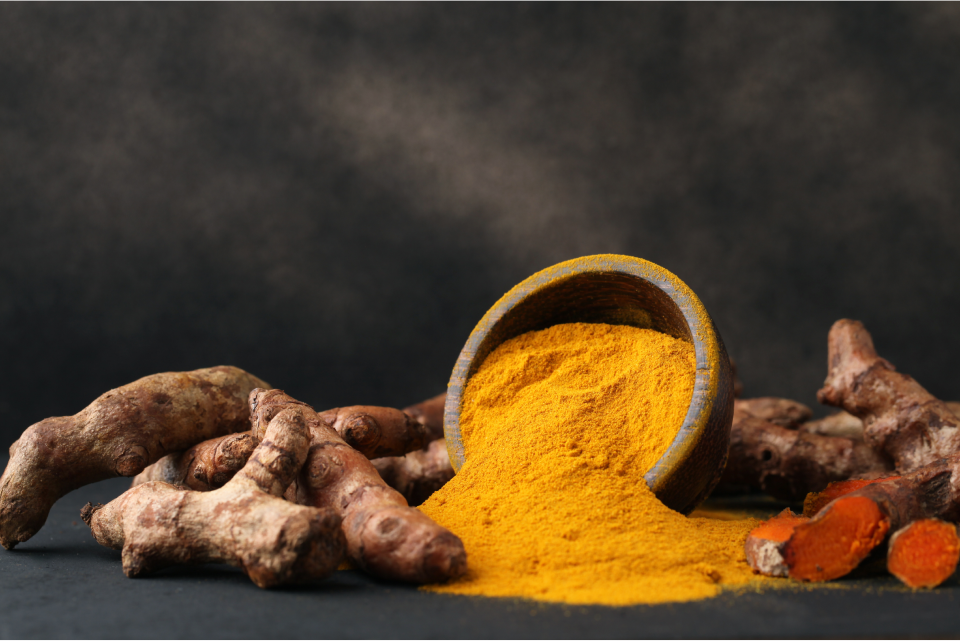-
Yogurt: Friendly bacteria, also known as probiotics, are abundant in live yogurt. Try sugar-free varieties and add your own fruit for a tasty and nutritious breakfast.
Plus, drinking yogurt in beverages like kefir can be a very effective way to get high levels of healthy gut bacteria into your daily routine, far more than you would find in regular semi-soft yogurt.



However, be aware that store-bought brands can contain a lot of sugar. So, check the ingredients lists and macros to make the choice that aligns most with your dietary plan or health requirements.
-
Kefir: Given its name from a mountainous region between Asia and Europe, as well as Russia and Central Asia, and made from fermented milk, kefir can help prevent a leaky gut. Besides, it also makes a tangy and tasty addition to smoothies and soups––or you can use it as a base for salad dressing (simply add lemon juice, sea salt, and seasonings to taste).



-
Miso: Fermented soya beans, rice, or barley are used to make miso, which contains helpful bacteria and enzymes. Dips, dressings, soups and marinades can utilize this savory paste. This is a staple of Japanese cooking that's suitable for those who avoid dairy.



While there is uncertainty in the research regarding whether the bacteria in these ingredients reach the gut, in regions where miso is a staple fermented food source, the population has better gut health and less bowel disease than documented in other regions of the world.
-
Sauerkraut: Basically, it is fermented cabbage chopped finely. Probiotics, fiber, and vitamins are all found in this delicious German dish. Eastern and central European versions are also available. Make sure that the product hasn't been pickled in vinegar, as that won't offer the same gut-boosting benefits.
This selection is delicious served with sausages, and it's cheap and easy to make at home.



-
Kimchi: Fermented vegetables are a Korean specialty, which contain probiotic bacteria, vitamins, and fiber. Serve it with meat, salad, or eggs as a lively side dish.
Plus, as a fun fact: Koreans say "kimchi" when they have their pictures taken the same way we say "cheese” in America.



-
Bone Broth: Intestinal and digestive health is greatly improved by regularly drinking bone broth.
Broths may differ in their nutritional profiles depending on the ingredients they contain. However, many include iron, vitamin K, vitamin A, zinc, and more, all of which can benefit gut health and promote healthy hair, skin, and nails, as well.



-
Garlic: The antibacterial and antifungal properties of garlic can help keep "bad" gut bacteria at bay and balance yeast in the gut.
Use it as a fantastic flavoring for savory dishes: garlic's properties are a fabulous fuel source for healthy bacteria, which helps improve gut function and heal digestive problems.



-
Kombucha: There is no doubt that water is vital to gut health, but what else can you drink? The Kombucha drink, which originated in Manchuria, has probiotic strains of bacteria in it and is an excellent beverage to sip regularly to maintain optimal gut health. It has a sharp, vinegary taste and can be used as a refreshing drink on its own or mixed with fruit and spices. Furthermore, it makes a tasty base for sweet and hard cocktails.



-
Olive Oil: Extra virgin olive oil (EVOO) contains bioactive compounds (e.g., polyphenols). Plus, the fatty acid profile of EVOO is rich in oleic acid which provides beneficial health effects as well.
Moreover, olive oil biophenols, with their high gut concentrations, have a direct antioxidant effect and help to modulate intestinal epithelial homeostasis by positively affecting inflammation and gut microbes.



Furthermore, extra virgin olive oil may decrease leaky gut by increasing the number of healthy bacteria in the gut, called Bacteroides.
-
Fresh Fennel & Seeds: Essential oils from fennel seeds stimulate the release of digestive juices and enzymes. As an antispasmodic and anti-inflammatory, fennel seeds contain anethole, fenchone and estragole. Whether you have constipation, indigestion, or bloating, this supplement will help.



-
Ginger: Ginger helps produce stomach acid and stimulates digestion to keep food moving through the intestinal tract.
Grate fresh ginger into soups, stews, smoothies, or stir-fries. Or experiment with making a refreshing ginger tea by pouring boiling water over grated ginger and steeping to allow its flavor to fully develop.



-
Turmeric: Turmeric's antioxidant and anti-inflammatory properties contribute to healthy digestion––the key reason why the herb is used as a digestive healing agent in Ayurvedic medicine.
Including the potent element into your daily routine can aid in soothing sore joints and muscles, along with tamping out inflammation throughout the body to aid in establishing better overall balance.



-
Pineapple: This fruit is our only source of dietary bromelain, a digestive enzyme that helps break down proteins.
Pineapple's bromelain also helps reduce pain and inflammation, including gut inflammation when eaten on an empty stomach. Therefore, it may prevent leaky gut syndrome and promote a healthy gut lining.



Plus pineapples are completely accessible. Just check the aisles of any grocery store or health food store to pick up this tropical treasure in your area.
-
Chia Seeds: These seeds can serve as a prebiotic that helps your stomach produce healthy bacteria that keep your digestive system functioning properly. Plus, chia seeds can also act as a cleansing agent for the digestive system, as they become a sticky gel-like substance when soaked in water.



-
Winter Squash: Winter squashes like butternut, acorn, and pumpkins are abundant in soluble fiber, which our gut bacteria crave. Filled with fiber, vitamins, and minerals: butternut squash helps keep digestion moving while offering essential nutrients to the body.
And, of course, being whole plant foods, they're also loaded with water, making them both hydrating and beneficial for boosting microflora in the gut.



-
Coconut Oil: Coconut oil can help to stimulate the metabolism and help to increase the body’s ability to burn fat. Coconut oil can also help to reduce appetite and promote a feeling of fullness to aid in curbing appetite naturally.
Coconut oil can also support healthy and balanced gut bacteria thanks to its antifungal properties.



-
Lemon: This low-carb fruit adds a welcomed zing or zest to brighten recipes.
Plus, these yellow gems contain a significant amount of pectin, a type of fiber that acts as food for your friendly gut bugs, encouraging the balance and growth of healthy gut bacterial strains like bifidobacterium.



-
Beets: Beet betalains and phenolics appear to enhance the production of metabolites (a.k.a., short chain fatty acids) by gut microbiota and probiotics, which are associated with various beneficial effects on the digestive system.



-
Papaya: One of the most beneficial fruits you can consume for gut health, papaya contains high amounts of beneficial digestive enzymes. These elements soothe the gut and aid with processing and assimilating amino acids and fats.
Also, these tropical fruits edge out bad bacteria in the gut and are an excellent source of prebiotics to create the ideal environment for easy and efficient digestion.



-
Apple Cider Vinegar: The variety of antioxidants found in ACV, called polyphenols, help support your “good” gut bacteria. Plus, the acetic acid it contains provides antibacterial and antifungal properties, which explains why people have turned to vinegar to disinfect wounds for centuries.



-
Sourdough Bread: In the wake of the pandemic, baking homemade bread, especially sourdough, has become all the rage. However, this traditional bread is also regaining popularity for good reason: it’s digestible and its energy is released slowly as a result of fermentation. In addition, it makes fantastic toast!












































